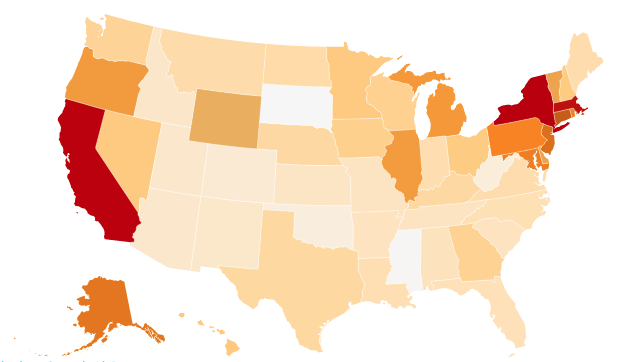
In 2017, Colorado ranked #47 of 51 (states and D.C.). The rankings here show interesting trends across time. While the average salary has gone down since 2000, nationally, there are a few states that increased their average salaries significantly. Not only was the U.S. in an economic boom in the year 2000, but the Great Recession in 2008 significantly impact these trends. Additionally, as always, geography affects costs of living, which is going to impact salaries. It is not surprising, therefore, that the top ranking places for teacher salaries have high costs of living. These salaries are not adjusted based off of cost of living.
As mentioned before, average teacher salaries often measure teacher experience and workforce retention, in addition to capturing these costs of living differences. In Colorado, we know that cash-strapped rural districts have lower starting salaries for teachers than more affluent towns. For these reasons, average salaries can be a challenging measure to truly understand the wage differences both within and outside of a state. We would prefer to compare salaries that held experience and credentials constant and accounted for cost of living adjustments. (For example, what does a 5th year elementary teacher with a master’s degree make in one state or district compared to others?) Yet, even average salaries can shed light on statewide investments in teachers.
Colorado’s consistently low rating for average salary, and, importantly, the extremely low ranking based on percent change in salary, underscore the way that the state has not prioritized increasing teacher salaries. Notice that other “Red4Ed” states, such as West Virginia and Oklahoma, are amongst the lowest salaries, nationally, and haven’t seen significant growth over time either.
This question came from the community as part of A+ Answers, a community-driven research and reporting project, where we answer your questions to empower conversations about education in Colorado.